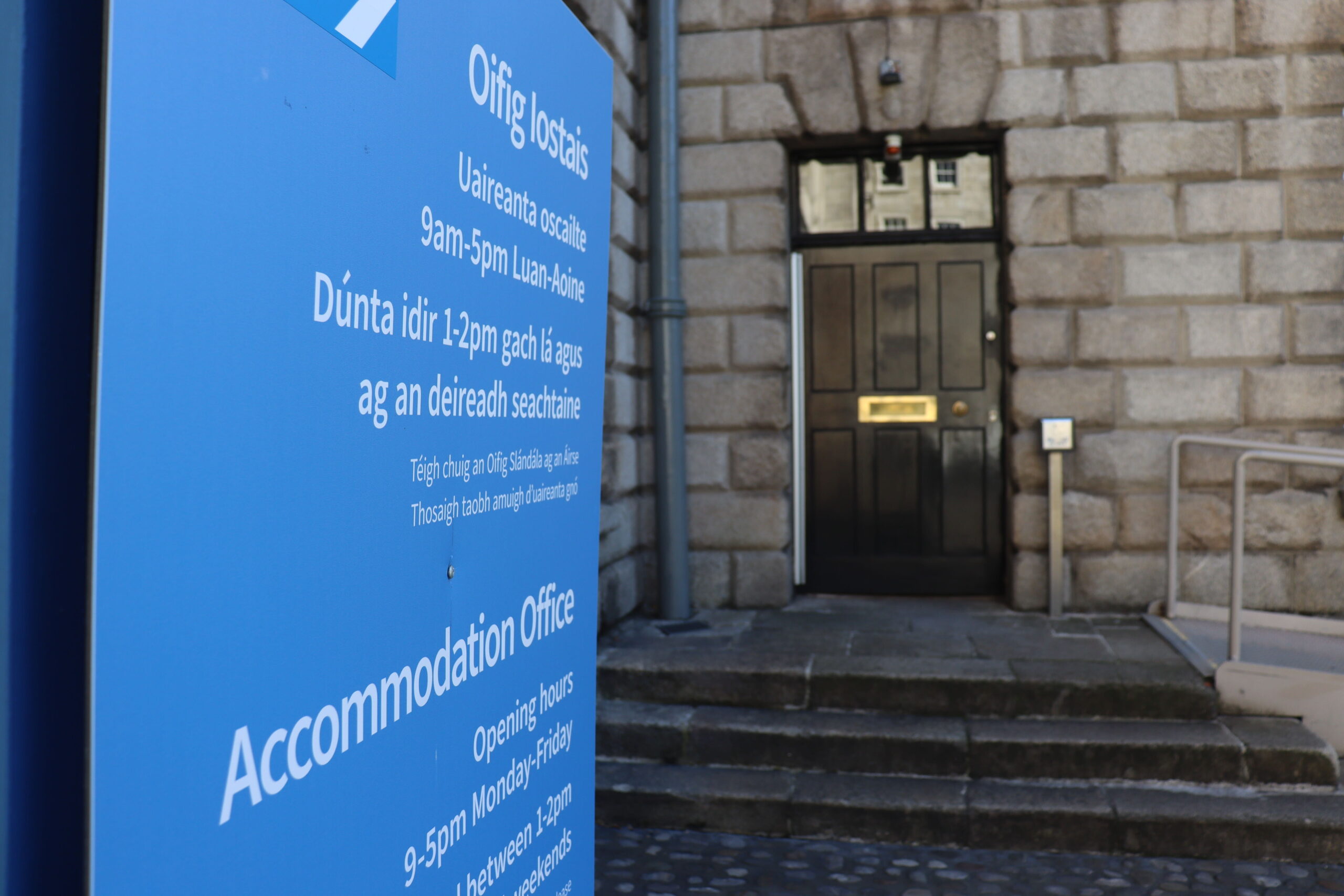During the summer holidays, Trinity offers its student accommodation to tourists as a cheaper and centrally located alternative to hotels. Aside from tourists, Trinity-employed accommodation workers also stay and work at the student accommodation. There have been a number of reports about the working conditions these workers face concerning hourly pay, long on-call working hours or a tense environment. As well as that, accommodation workers were prompted to unionise for better working conditions by the Student’s Union, however, they shut down the request themselves, citing a fear of contract termination. The University Times spoke with previous accommodation worker, Alessandra Aspromonte about her time working at college accommodation.
When asked about her overall experience Aspromonte stated, “In general, I’ve been very lucky to end up with mostly sound coworkers and housemates each time. Unfortunately, the excitement faded quite fast this year as I had to deal with a pretty tense work environment from the very start.”
She further detailed the tense working environment, indicating that management were regularly aggressive towards staff workers.
“I don’t think I’ve ever been unnecessarily yelled at as much as I did this year (for the record, I always did my job correctly). In general, there was always the impression that management could not be nice to all of us at the same time: there always had to be a scapegoat. This mostly affected us supervisors, as we were dealing with upper management more than the rest and were expected to act as mediators,” Aspromonte explained.
Going into further detail Aspromonte recalled a specific instance of upper management reprimanding a coworker inappropriately stating:
“Front desk staff was not exempt from the unfairness. One of my friends got reprimanded quite aggressively due to a negative review, with the management team not being willing to listen to their version of the story or to ask the rest of us what actually happened. We were all subjected to the mood of our superiors, as some of them did not seem capable of regulating their own emotions before coming down on us.”
The University Times reached out to the Accommodation Office regarding these allegations. A College spokesperson stated that “Employees should raise any grievance about work conditions with their line manager in the first instance, and, failing that, with the senior management. We encourage them to do so.”
Aspromonte also addressed long on-call periods for staff workers and the unnecessary duties placed on accommodation workers where security workers could have been capable of resolving resident issues.
“Security are the ones that call us when they feel like they cannot deal with an emergency,” Aspromonte said. “This mostly includes issues with bookings or nighttime check-ins. Most of the time the accommodation staff gets called at night, it is an issue that security could deal with themselves. However, the security staff are not properly trained (to the point that we have had to head to Front Gate at 3am to remake someone’s key). With big emergencies, we were expected to deal with them too. Having long-term security staff would probably fix half of these issues. When an external contractor is sending in new staff every week, it is difficult to train them in unfamiliar policies and software.”
Regarding the uncompensated 12 or 24-hour on-call duties, Aspromonte stated that there was not a specific requirement to be on-call, but that there was an unspoken rule of always being available to help, even during breaks and days off,
“Our contracts did not explicitly require being on call at night like the other front desk staff members (they did not receive any extra pay for this, and I never received compensation for being on call last year). However, in a supervisor position, there is the unspoken expectation to be always available ‘to support the team’. This included being reachable during breaks and on days off, as well as during the night in case an emergency arose that could not be dealt with by the on-call staff. I also worked overtime after my contract ended, as management decided to close the office two days early for the season, despite still having guests on campus.”
The University Times was provided a blank contract by the Accommodation Office, which states that the worker will work 37.5 hours per week, which can be subject to change due to rostering arrangements. The contract does not mention anything about longer on-call times.
While the Accommodation Office would not disclose the hourly rate for workers because of privacy issues, Aspromonte detailed that front desk workers were paid exactly minimum wage, while she and the other supervisors were probably being paid a few cents more.
“In my opinion, this is not quite enough for the level of responsibility our role requires.”
While it is known that college accommodation workers receive free accommodation as part of their contract, accommodation workers receive no other benefits. When asked about the accommodation and benefits offered, Aspromonte stated that “Other benefits would have been nice, but no. Free accommodation is the only perk of this job and the main reason anyone ever applies for it. For the accommodation provided, I think €30/week was deducted from our salary.”
This is confirmed by the blank contract provided by the Accommodation Office in which it stands that 30 euros per week is the value of the Accommodation included. The contract also states that a 20% premium will be paid to employees who work on Sundays.
Finally, Aspromonte reflected on her working experience overall stating, “This year, the work environment was incredibly tense. I would not go back again, and I’m in a position where I don’t think I will have to. I can’t say the same for my coworkers: the housing crisis seems to be very advantageous for the Commercial Revenue Unit in TCD.”







